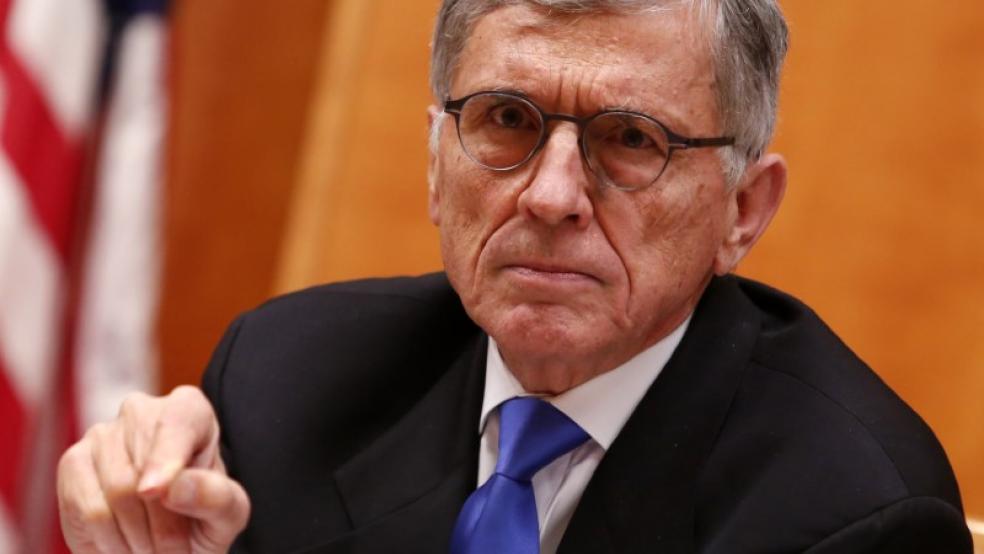WASHINGTON (Reuters) - The U.S. Federal Communications Commission on Thursday voted 3-2 to adopt new privacy rules that will subject broadband internet service providers to more stringent requirements than websites like Facebook Inc, Twitter Inc or Alphabet Inc's Google.
The rules will force companies like AT&T Inc, Verizon Communications Inc and Comcast Corp to obtain consumer consent before using certain user data for advertising and internal marketing. The final regulation is less restrictive than the initial plan proposed by FCC chairman Tom Wheeler in March and closer to rules imposed on websites by the Federal Trade Commission. Republican commissioners said the rules unfairly give websites the ability to harvest more data than service providers and dominate digital advertising.Wheeler said that by February he will propose rules that could bar internet service providers from using mandatory arbitration clauses to prevent consumers from going to court for billing or other disputes.The new rules are aimed at protecting sensitive personal consumer data, and providers must get affirmative consent for details like precise geo-location, financial information, health information, children’s information, web browsing history, app usage history and communication content. For less sensitive information, like email address or service tier information, consumers will be able to opt out. The FCC is also imposing new rules requiring disclosure of data breaches and stronger transparency about information collected.Free Press policy counsel Gaurav Laroia said the action "on privacy isn’t perfect, but it takes tremendous strides forward. It gives internet users far more control over how their personal information may be used by AT&T, Comcast and other carriers."AT&T senior vice president of federal regulators affairs Joan Marsh said in a statement that new FCC rules depart from the FTC rules governing websites "in significant and illogical ways, most importantly in the treatment of web browsing and app history data."She said the approach will confuse consumers who see ads generated by websites even after notification from service providers that consent is required.Some analysts said the rules could hinder AT&T's goal of using data from its planned $85.4 billion acquisition of Time Warner to enhance advertising. Comcast in a statement criticized the FCC for a decision "that unfortunately will likely do more harm than good for consumers, competition, and innovation in the all-important internet ecosystem."The Internet & Television Association trade group said the FCC adopting "a cobbled-together approach that abandons principles of fair competition is profoundly disappointing. Instead of creating a consistent and uniform approach to privacy that consumers can easily understand, today’s result speaks more to regulatory opportunism than reasoned policy."Several commissioners said the government should work to better harmonize the FTC and FCC rules.Senator Ed Markey, a Massachusetts Democrat, praised the move. "These broadband privacy rules are the next logical step since enshrining net neutrality in our telecommunications playbook. These rules will ensure that as technology changes, our core values do not - that consumers, not corporations, have control over their personal information," he said in a statement. (Reporting by David Shepardson; Editing by Chizu Nomiyama and Meredith Mazzilli)U.S. FCC approves new broadband service privacy rules

© Yuri Gripas / Reuters



